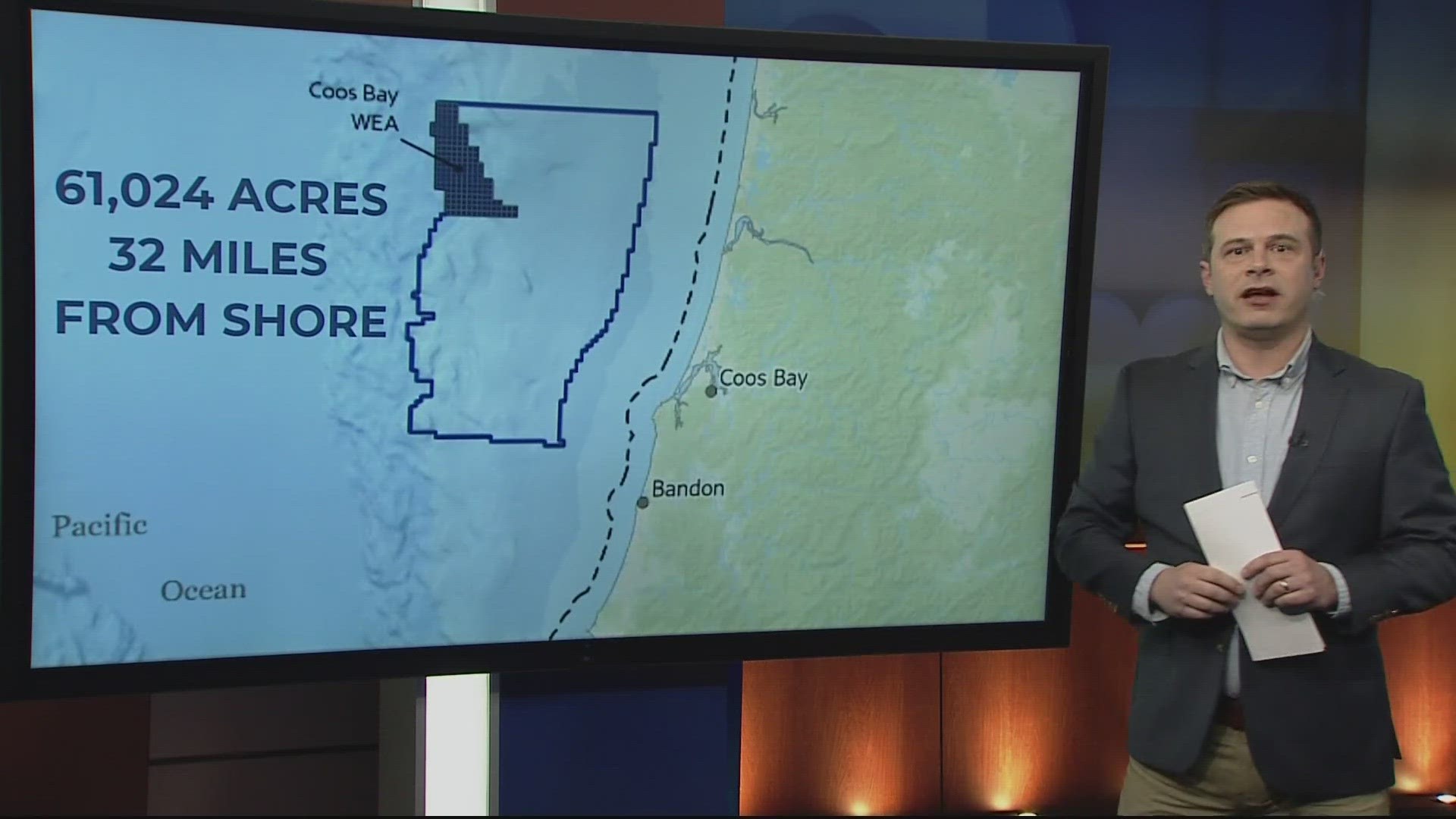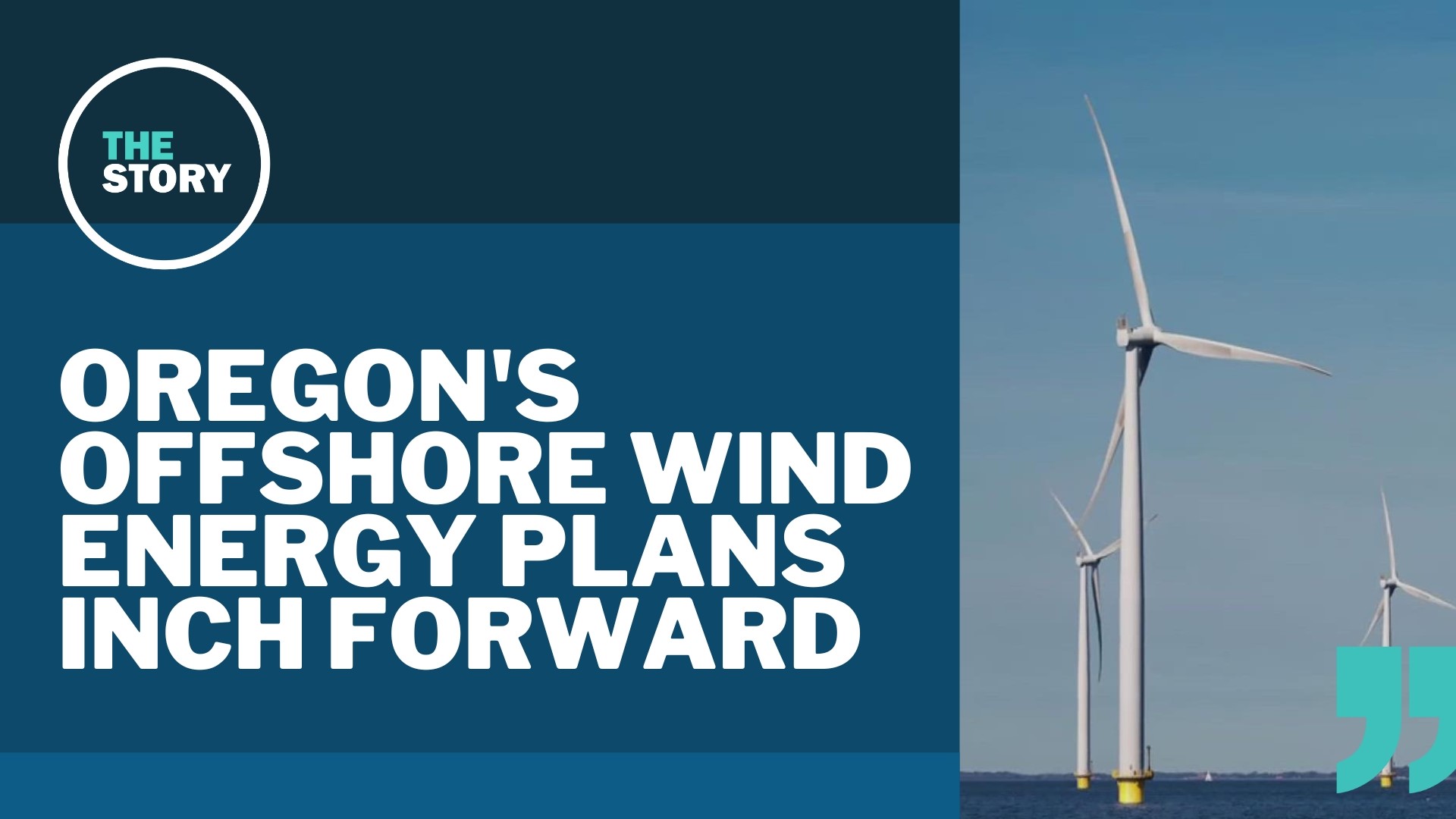The federal government has finalized two areas for floating offshore wind farms along the Oregon coast, authorities announced Tuesday, bringing the state closer to commercially developing and producing a renewable energy source that's part of the fight against climate change.
The two zones cover roughly 195,000 acres (78,914 hectares) and are both located in southern Oregon, the Bureau of Ocean Energy Management said. One area is 32 miles (52 kilometers) off the coast of Coos Bay, and the other is 18 miles (29 kilometers) from the shore of the small city of Brookings, located near the California state line. They have the capacity for producing 2.4 gigawatts of energy, the agency said, enough to power roughly 800,000 homes.
Following the announcement, Oregon Gov. Tina Kotek said she was committed to developing a transparent roadmap for exploring offshore wind opportunities with the input of coastal and tribal communities.
“Offshore wind is likely to play an important role in meeting our state’s growing energy demand and goal of 100% renewable energy by 2040,” Kotek said in a statement. “It also presents a significant economic development opportunity for the Oregon coast.”
RELATED: Wind turbine technicians get hands-on experience, job interview prep at Vancouver institute
BOEM said it finalized the two areas after consulting with local tribes. But the Confederated Tribes of the Coos, Lower Umpqua, and Siuslaw Indians refuted this, saying they were “extremely disappointed” that areas of cultural and historic significance were identified for offshore wind.
“BOEM’s press release states that it has ‘engaged’ with the Tribe, but that engagement has amounted to listening to the Tribe’s concerns and ignoring them and providing promises that they may be dealt with at some later stage of the process,” Tribal Council Chair Brad Kneaper said in a statement.
As a next step, BOEM said it will prepare an environmental assessment on the potential impacts of leasing offshore wind farms. There will be at least one 30-day comment period to allow the public to weigh in. An additional public comment period may be held if the federal agency decides to move forward with a lease sale in either of the areas.
The offshore wind industry in the U.S. is growing after lagging behind Europe for decades. In December, a turbine off the coast of New York sent electricity to the U.S. grid for the first time. The first auction of leases to develop commercial-scale floating farms was held in 2022, for five sites off the coast of California.
President Joe Biden hopes to deploy up to 15 gigawatts of electricity through floating sites by 2035, enough to power 5 million homes. The administration has set a goal of 30 gigawatts of offshore wind energy by 2030 using traditional technology that secures wind turbines to the ocean floor.


